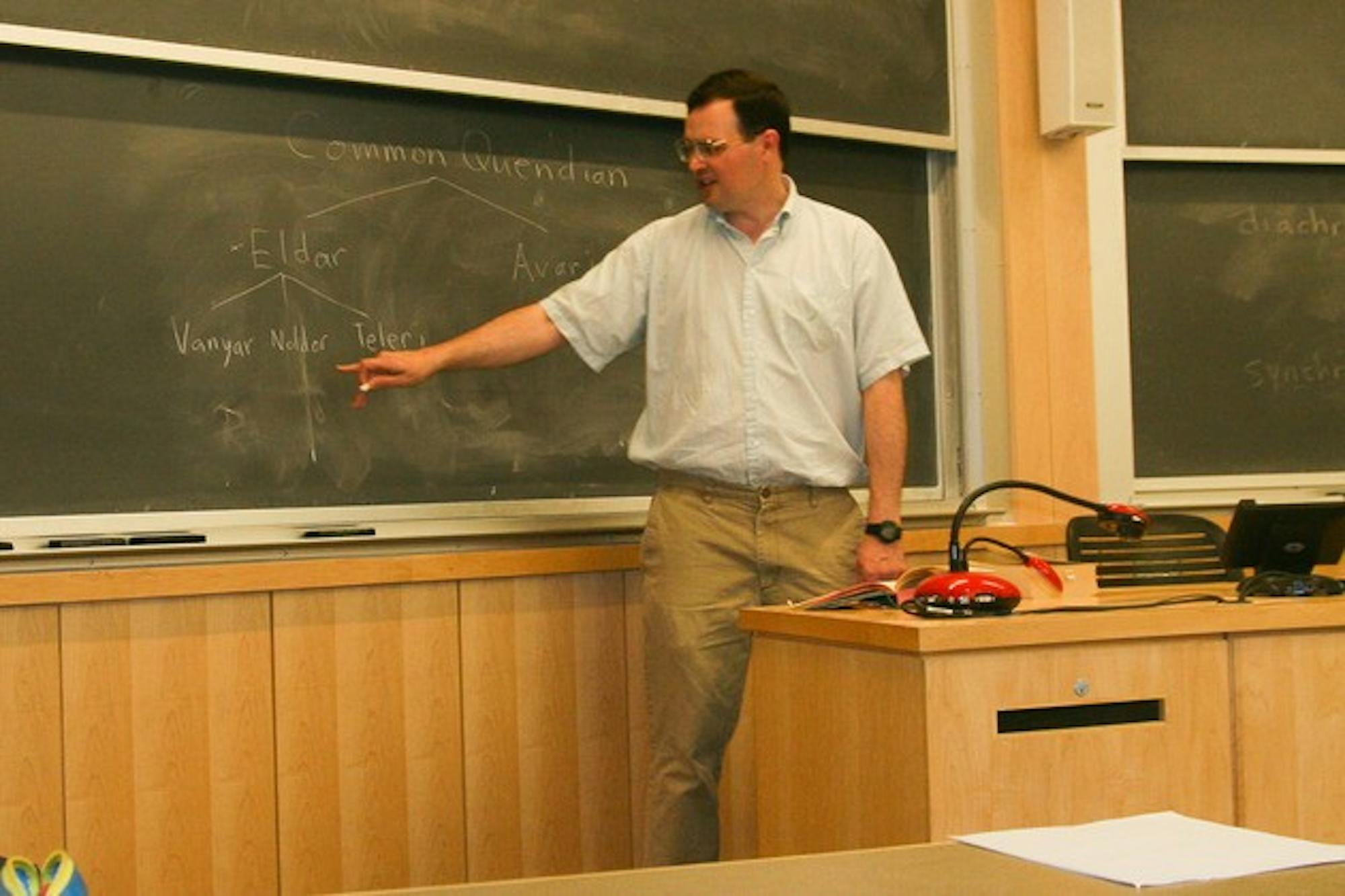Whether students are trying to fulfill hard-to-get distributive requirements or spice up their major track, it's more than likely that you know at least a few '15s who are using this term to take classes that they wouldn't normally. After all, a liberal arts education encourages students to step outside comfort zones and approach learning from a diversified perspective and over sophomore summer, our definitions of what qualifies as "diversified" may extend even further. We have a propensity to embrace the offbeat during our term at "Camp Dartmouth," and the College and professors respond by giving us some academic opportunities to match.
With the intention of making this term different from the rest well-ingrained in the sophomore class, initiatives like those taken by classics and linguistics professor Timothy Pulju tend to receive a warm response. Pulju is teaching "Languages of Middle-Earth" this summer. The class will examine the works of J.R.R. Tolkien with a focus on his creation and use of languages.
Ashton Slatev '15, who is currently enrolled in the course, was immediately impressed. Students were required to have read all "The Lord of the Rings" books and "The Silmarillion" by the beginning of the term, and were given a quiz when they arrived in class last week.
"We were given two maps of Middle Earth, Beleriand and all of the other places in Tolkien's books," Slatev said. "Based on our knowledge of the stories, we had to translate the names based on common sense. In a classroom with no native speakers of Elvish, no one had an advantage."
A linguistics major, Slatev decided to take "Languages of Middle Earth" after previous experiences with Pulju, but noted that not all of his classmates had the same reasoning.
"There are definitely people I recognize in the class from other linguistics courses, but at the end of class on Friday, Pulju asked if anyone could repeat the Elvish scripture on the ring," he said. "It's fairly long, and about 10 people knew it, so I'm assuming there are some diehard Lord of the Rings' fans too."
Students expressed a wide variety of reasons for their selection of summer classes. Florence Gonsalves '15 needed to take "Applied Ethics" as a part of her philosophy major requirements, and this summer's class focused on the ethics of food choice and policy.
"I think the way people choose to eat is an interesting reflection of their values," she said. "I took the class Food and Power' in the spring, and as a former vegetarian, I guess I've dabbled with the ethics of eating other animals in a modern society when we have options available to sustain ourselves."
Gonsalves added that,she was excited to take the class with philosophy professor David Plunkett.
"He's a cool guy and not mainstream in the least," she said. "He wants to be called David and doesn't like to have conversations over email when we can easily speak face-to-face on such a small campus. I think he's going to spin the class in a way that's engaging and puts learning in the hands of the students."
Another sophomore summer course notorious for its hands-on approach is "Ecological Agriculture," more commonly referred to as Organic Farming. Offering a fun way to be outside while also fulfilling the TLA distributive, the class is being taught by environmental studies professor Michael Poage this summer.
Juan Nicholls '15 expressed a genuine interest in the questions that the course takes on.
"I'm very interested in agricultural sustainability since we obviously need to keep eating, but still need to keep the world healthy," he said. "We can't do that with the way we're growing food right now."
Nicholls knew that if he wanted to take it, summer would be the only time.
"At the beginning of the term you plant a crop and at the end you harvest and eat it, which you can only do this season," he explained. "I've heard that at the end of the class, you cook a dish involving what you grew and bring it to class."
"Classical Mythology" is yet another popular course offered only over sophomore summer, fulfilling both the TMV and CI distributive requirements. The course aims to survey ancient Greek and Roman myth and is taught by classics lecturer David Riesbeck.
Laura Hechtman '15 was not initially planning on taking the course, but decided to sit through the first day.
"I was a little Classics-ed out from my FSP in Greece last term, but ended up shopping it to see what it was like," she said. "Professor Riesbeck is awesome and excited about the material, and it will help me complete my minor, so I decided to take it."
Ralph Scozzafava '15 was drawn to the class given his previous experience with the subject.
"I'm interested in mythology and took Latin in high school, and I used to do Latin Certamen, which is like Quiz Bowl for Latin," he said. "I also heard it was fun and not that hard."
While many of us still find ourselves in the "Camp Dartmouth" mindset a week or two into the term, rumor has it that schoolwork will catch up with us. At some point, we'll have to trade long days on the Green for longer ones in the library, but maybe stepping outside of your comfort zone and taking an unusual class or two is the way to make it all the more bearable.
Unless of course it's a 2A, in which case my suggestion to you would be to drop it. That's precious river time.




